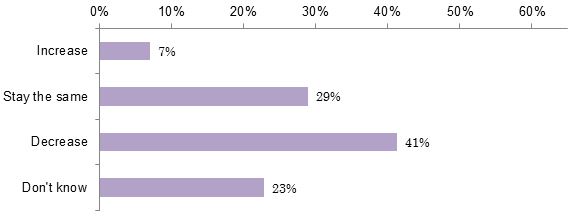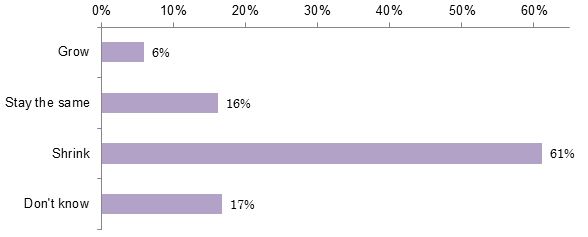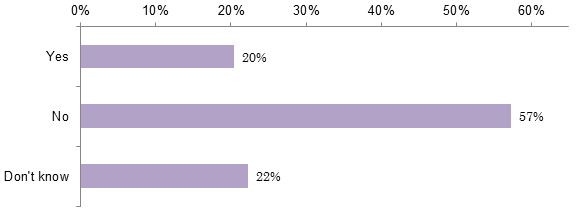On 23 June, the UK electorate expressed its desire to leave the EU. What this means for the construction industry generally, and for the design profession in particular, is unclear.
Projections for growth made before the referendum assumed a level of economic certainty that we just do not have now. There is political uncertainty, economic uncertainty, and uncertainty about our future with the EU. We don’t know how trade arrangements with the EU and the rest of the world will be worked out. We do know, however, that trade with the EU is important. For example, 40% of international trade among RIBA Chartered Practices comes from the EU.
To help get a little clarity, by obtaining more data, we invited the design community to complete a very short survey. A large number, 650, responded to our survey, showing just how important the referendum result is. We also invited general comments, and we have used some of these to illustrate the findings. Many of the comments were put in strong terms, demonstrating the deep-held, and often polarised, beliefs that people hold. Our thanks to those who took the time to share their views.
This article gives a brief overview of the findings. The expectation of the design community, overall, is that the referendum result will have a negative effect on their businesses, their staff, and on the wider construction industry.
The effect on workload
First off, we can see that many more believe that the leave decision will see their workloads decreasing (41%) rather than increasing (7%). 29% tell us that their workload will remain the same, regardless. Nearly a quarter are reserving their judgement.
“Too soon to tell long-term effect but it seems certain the short to
medium-term outlook looks to be distinctly negative.”
“I believe eventually it will work out fine.”
Graph 1 : The referendum result means in the next 12 months my company's workload is more likely to:

The effect on staffing levels
“I graduated in 2008, and speaking from personal experience I fear
graduates and trainees will experience the same hardships over
the coming years, with many forced into other industries.”
If workloads are to contract, does this mean that the number of staff will contract too? In the recession of 2008 we saw a very rapid contraction in workload, but this was not matched by a contraction of staff. Staff were lost, but practices were often at pains to retain the people and skills they would need for the eventual upturn. We see similar projections here, with fewer foreseeing a decrease in staffing levels than foresee a reduction in workload. 43% see staffing levels remaining the same, 30% a decrease, and a mere 5% seeing an increase. Several respondents raised specific concerns about being able to retain EU staff.
“We have European clients and this puts much of our workload at risk.
In addition, we have several non-British staff members, causing a lot of worry to them.
There are no obvious positive benefits to our firm.”
Graph 2 : The referendum result means that in the next 12 months my company's staffing level is more likely to:

The effect on the UK construction industry
“We are now certain to head into a self-inflicted recession when many of us
have yet to have fully recovered from the crash of 2008.”
“Trade will still continue and people will still want to come to Great Britain.
Nothing really changes other than we have more powers to make our own decision.”
Those who responded to the survey do not tend to feel that the referendum decision will help the wider construction industry. It looks like the referendum result means that the construction industry, already showing signs of near term fragility, is now more likely to shrink. 61% think so, compared with only 6% who feel it is more likely to grow.
Historically, the construction sector has fared worse than the general economy in a recession, and better in growth periods. Further, design workloads tend to grow and shrink more than the broader construction industry. However, our respondents tend to think that the design sector may, this time, not fare as badly as the broader construction sector.
“Too early to say the real implications but several of our clients had a large percentage
of their value wiped in the days immediately after the result.”
Graph 3 : The referendum result means that in the next 12 months the UK construction industry is more likely to:

The effect on projects
So far, we have looked at people’s views about the future. The following questions suggest that the effects of the referendum are already tangible. Just over two weeks after the referendum, a fifth, 20%, tell us that they have had at least one project cancelled or put on hold. By looking at individual figures, we get a sense of the importance of this; one practice reports 80% of their projects on hold or cancelled, another that the value of cancelled projects is £80 million. Among 20% who told us they had had projects cancelled or put on hold, the average was 15% of projects.
“We are aware of several projects with so called Brexit clauses
which have now been triggered and put on hold.”
“Whilst not yet having projects on hold, the danger is that the financial uncertainty
created by Brexit will leave projects less likely to proceed, as funding is less certain.
Clients are certainly less optimistic now.”
Graph 4 : As a result of the referendum have you had any projects cancelled or put on hold?

Your view on the result
Finally, we asked about respondents’ assessment of the referendum result. It is fair to say that most of the design community do not think the nation made the right choice. Three quarters disagree with the statement that “in voting to leave the EU, the UK electorate has made the right decision”. Only 17% agree.
Graph 5 : Do you think that, in voting to leave the EU, the UK electorate has made the right decision?

“The vote to leave came as a total shock.
At a time when we need stability as a platform for growth the vote to leave
could not have come at a worse time producing uncertainty.”
“Change is always difficult; however, the benefits will be long lasting.”
In conclusion
So, that gives a summary of the findings of our survey. The NBS Economics Panel had a detailed discussion about the meaning of the referendum. One of the themes that emerged in that discussion is that we are in a period of great uncertainty. We don’t yet know what agreement with the EU will eventually emerge. It is only once we do, that we will start to have a clearer understanding of what Brexit means.
Over the coming months we at NBS will continue to monitor and report on the views of the design community. Thanks again to all who took part in our survey.


